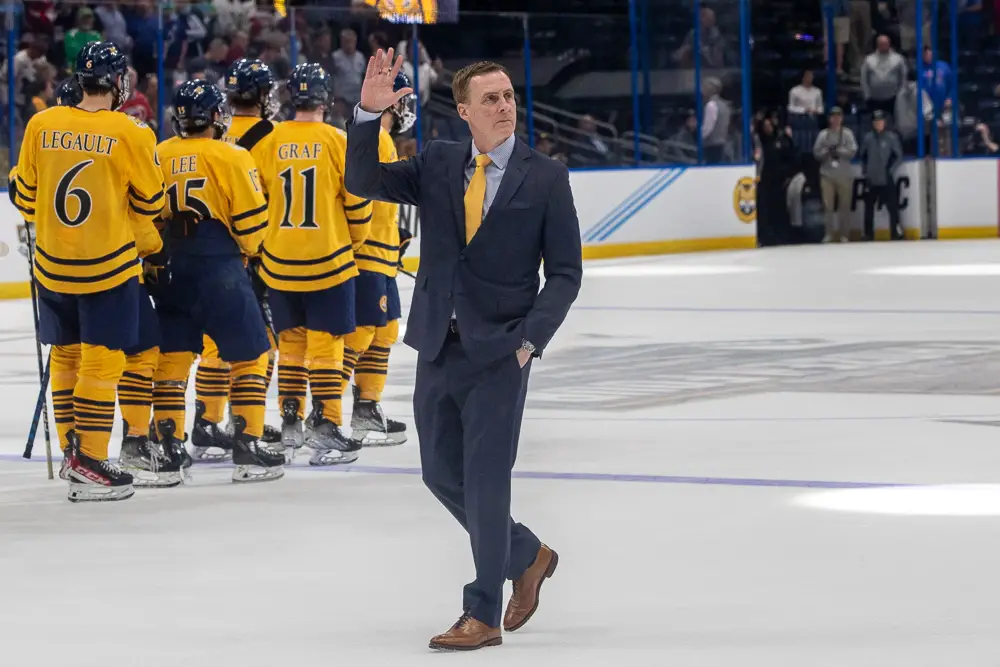
TAMPA, Fla. — A team’s culture can be difficult to define and explain. For Quinnipiac coach Rand Pecknold, in his 29th season behind the Bobcats bench, culture means something specific to his team.
“Culture is hard to explain,” he said on Friday before the Bobcats’ final practice of the season in preparation for Saturday’s national championship game against Minnesota.
“I could spend three hours up here talking about everything that goes into culture. Probably the easiest and simplest way is (that) it’s buy-in. It’s just buy-in. It’s unconditional. This is what we do to win hockey games and you need to be selfless and you’ve got to buy in.”
Implementing the right kind of culture can be an adjustment for players, according to Pecknold.
“It’s hard to get college-aged players to (buy in),” he said. “Growing up, they’ve probably been a very selfish player, (which is) why they’re good. They’ve kept the puck at 8, 9, 10 years old. The best players at age 10 are the selfish kids. They don’t pass it to anyone. They go end to end, and they get better and better.
“You need those kids. You need high-character kids and you need to get them … to make sacrifices so we can win. And I think that’s probably the best way for us with culture.”
After his team’s 5-2 win over Michigan in the semifinals on Thursday, Pecknold said that his team’s culture was on full display.
“The battle level was great,” he said. “We won a lot of races. We won a lot of battles. When we got beat at times, we had a second wave, third wave. Good sticks on pucks.”
Graduate student forward TJ Friedmann was on the same page on Friday when asked about his team’s culture.
“Obviously that’s a big part of the success of this program, our identity and our culture,” he said.
“That just means doing all the little things right. Obviously, buying into the plan we have each game. The coaches do a good job of getting us prepared with video sessions and everything.”
And winning comes from implementing that plan and mindset.
“The bottom line is that the culture is just kind of understanding what needs to be done,” said Friedmann. “Whether it be the little things, backchecks, forechecks, moving our feet in the ‘O’ zone, making plays that can be made. And then obviously if you don’t have a play to be made, just chip it in and get on the forecheck.”
Friedmann said that the Quinnipiac way has been instilled in him and his teammates from day one.
“I’m in my fifth year here,” he said. “The culture has been instilled in me since I stepped foot on campus. Obviously, this program, from where it started to where it’s at now, is a massive difference. And that can kind of speak to Rand’s identity and the culture he’s built.”
Pecknold said that with that cultural buy-in, his team can approach every game the same, including Saturday’s title game.
“We’re going to have the same plan of attack in game 41 as we’ve had every single game this year,” he said. “Certainly you have to adapt to your opponent. (But) the same thing we did against Michigan, we need to do against Minnesota.”


